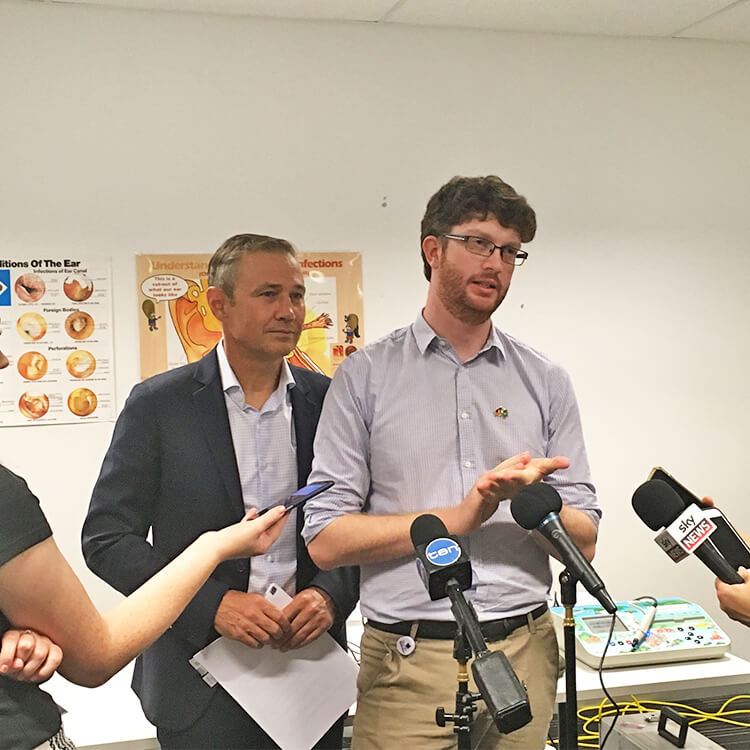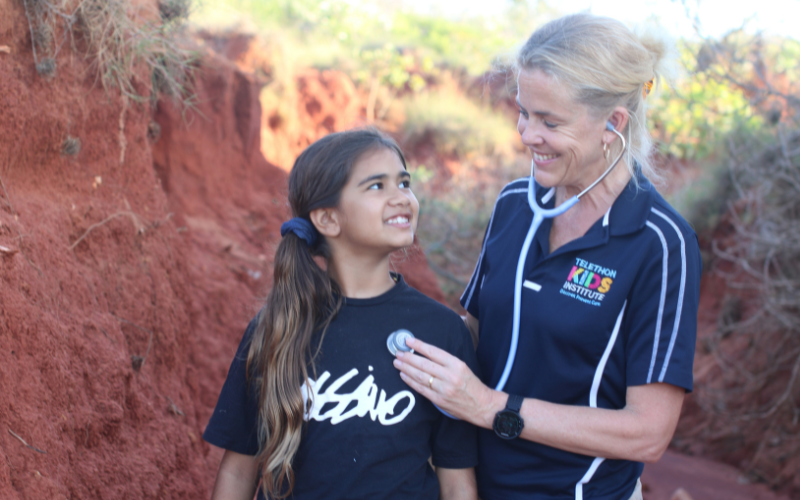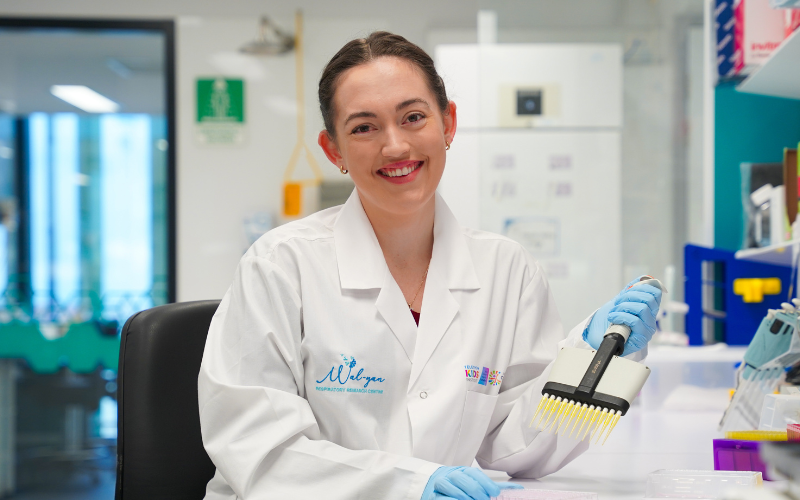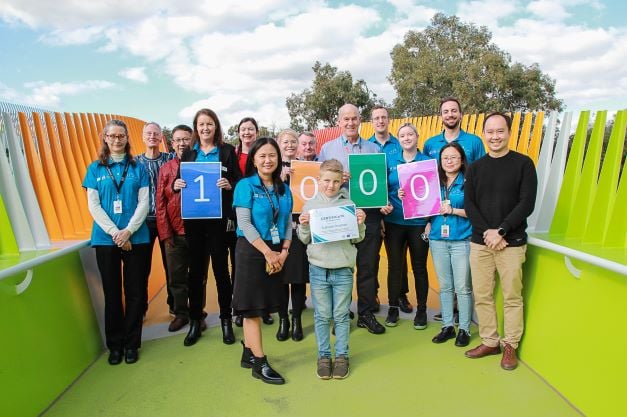Search
Showing results for "Au"
Research
Clinical significance and applications of oscillometryRecently, "Technical standards for respiratory oscillometry" was published, which reviewed the physiological basis of oscillometric measures and detailed the technical factors related to equipment and test performance, quality assurance and reporting of results. Here we present a review of the clinical significance and applications of oscillometry.

News & Events
New ear health study music to the ears of Aboriginal childrenWait times for Aboriginal children suffering ear infections could be reduced to less than four weeks thanks to a new The Kids Research Institute Australia research project
Research
Incidence and survival for childhood central nervous system tumours in Australia, 1983–2016To investigate incidence and survival of childhood tumours of the central nervous system (CNS) by histological subtype, tumour behaviour and tumour grade. Methods: National, population-based data on all children under 15 years old diagnosed with a CNS tumour between 1983 and 2016 were sourced from the Australian Childhood Cancer Registry. Incidence rate trends were calculated using Joinpoint regression.
Research
Preventing heart failure: a position paper of the Heart Failure Association in collaboration with the European Association of Preventive CardiologyThe heart failure epidemic is growing and its prevention, in order to reduce associated hospital readmission rates and its clinical and economic burden, is a key issue in modern cardiovascular medicine. The present position paper aims to provide practical evidence-based information to support the implementation of effective preventive measures.
Research
ACTIVE STRIDES-CP: Protocol for a randomised trial of intensive rehabilitation (combined intensive gait and cycling training) for children with moderate-to-severe bilateral cerebral palsyFor children with cerebral palsy (CP), who are marginally ambulant, gross motor capacity peaks between 6 and 7 years of age with a subsequent clinical decline, impacting their ability to engage in physical activity. Active Strides-CP is a novel package of physiotherapy targeting body functions, activity and participation outcomes for children with bilateral CP. This study will compare Active Strides-CP to usual care in a multisite randomised waitlist-controlled trial.
Research
Health-related behaviours and weight status of expectant fathersLittle attention has been given to the health status and lifestyle behaviours of expectant fathers. This study aimed to examine health-related variables in a cohort of expectant fathers to identify potential focus areas for interventions designed to optimise health and wellbeing outcomes in this group.

News & Events
Research to explore promising new RSV treatment supported by innovation seed fundingResearchers from the Wal-yan Respiratory Research Centre are collaborating with Virex Pharma to undertake vital research into a potential breakthrough treatment for RSV infections in young children, thanks to a $499,241 grant awarded by the WA Department of Health Innovation Seed Fund.

News & Events
New trial aims to nip chronic lung disease in the bud for First Nations kidsWA researchers will use a $1.97 million Medical Research Future Fund grant to develop a strategy for better follow-up of First Nations children after they’ve been hospitalised for respiratory infections, in a bid to halt the slide into more severe lung disease.

News & Events
Fellowship to support research into ways to improve the lung health of people born pretermWal-yan Respiratory Research Centre researcher Ms Denby Evans has been awarded one of four inaugural fellowships supported by the State's Future Health Research and Innovation (FHRI) Fund and Brightspark Foundation, enabling her to further her research into ways to improve the lung health of people

News & Events
20-year MAVRIC study celebrates recruitment of its 1000th participantThe MAVRIC (Mechanisms of Acute Viral Respiratory Infection in Children) study recently celebrated the recruitment of the 1000th participant to the study, eight-year-old Sullivan Strahan.
